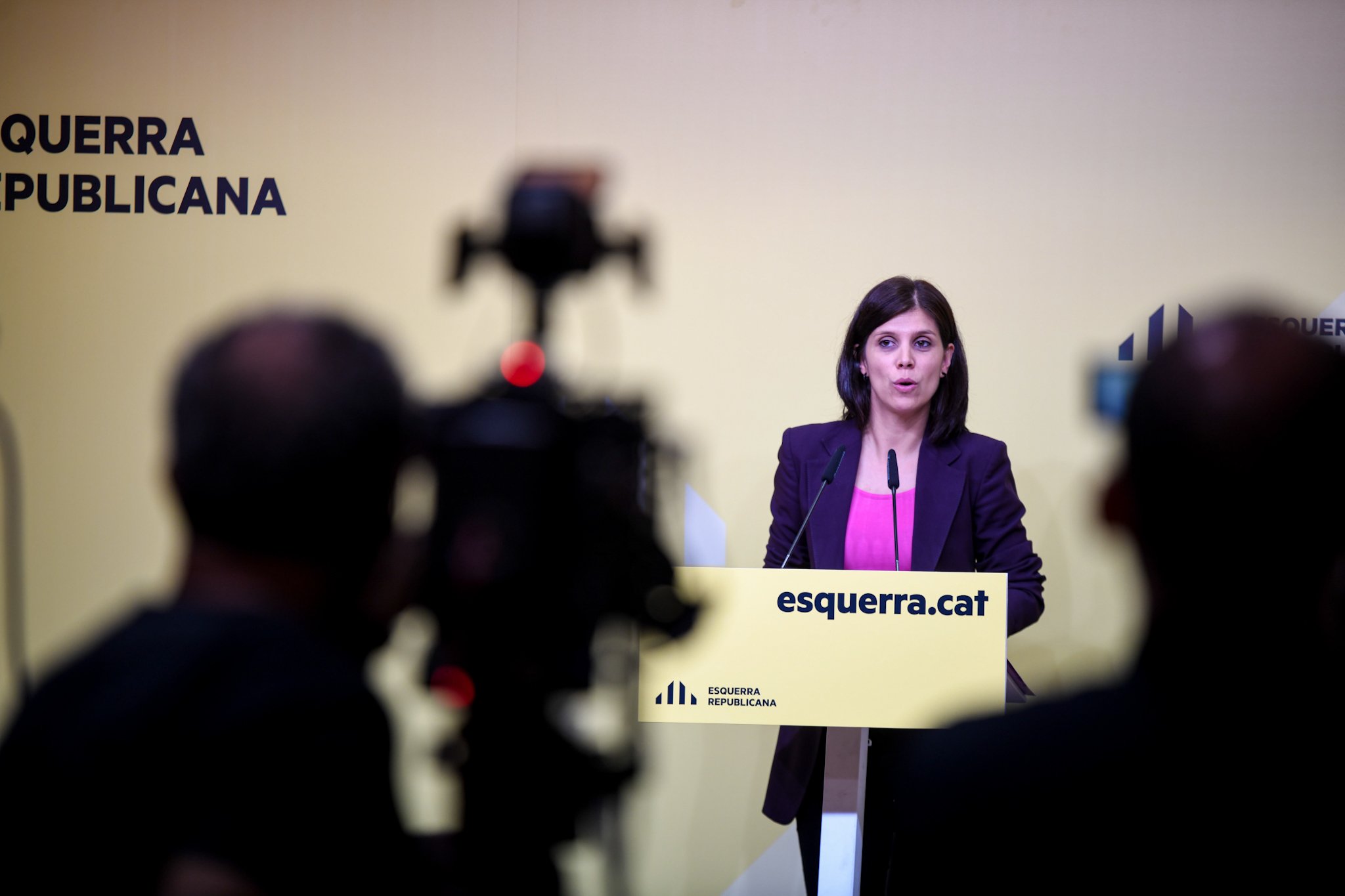The new single-party Catalan government of president Pere Aragonès has not yet taken office. It will do so tomorrow with many challenges ahead and, for the moment, having no clear majority in Parliament to move forward. The first big test will be the budget, which has been drawn up by outgoing minister Jaume Giró. It is to this circumstance that the Catalan Republican Left (ERC) clings in demanding its former partners in Together for Catalonia (Junts) not to withdraw their parliamentary support and help move the legislature forward. "Head-on opposition to the policies that they have initiated would not be understood", argued ERC deputy general secretary and spokesperson, Marta Vilalta. The Republicans also question the alternative-left Comuns, with whom they will "intensify" contacts, and the left-wing, pro-independence CUP. But they are maintaining their veto of the PSC because it is not committed to the major Catalan consensuses, those shared by "80%" of the population: an end to the repression in Catalonia and the approval of a vote on self-determination.
This Monday's ERC executive meeting was the first since the two-party coalition government changed to a monocolour ERC government under president Pere Aragonès. And from the party's Carrer Calabria headquarters they congratulated themselves because a new executive, "cohesive, strong and 100% dedicated to working for the well-being of the citizenry" has emerged. In the press conference after the meeting, Marta Vilalta underlined the political orientations that the new ministers have, along the lines of the "broad route" towards independence that Aragonès has always defended. And he took the opportunity to make "a call to have a sense of the country, to the responsibility of everyone" in moving forward in a "complex autumn" full of challenges. "We have to make appeals to everyone, including Junts", replied the Republican spokesperson. She demanded "responsible opposition" from ERC's erstwhile pro-independence partners.
The most immediate challenge will be the negotiation and passing of the Catalan government budget, which will now have to be piloted by the new economy minister Natàlia Mas. The new government is born with a fragility of support: for now, it is only able to rely on 33 deputies in Parliament, with both Junts and the CUP now in the opposition. Although she does not rule out an extension of last year's budget, the ERC spokesperson recalled that it is Junts that has worked with the accounts so far. "It would not be understood for them to come out now and take up direct opposition to policies that they had initiated. We wouldn't understand it if they went from white to black", she justified in this regard. "If [the budget] has been good until this week, it will continue to be," added the Republican leader. And she responded: "Right now the majority to pass the budget practically exists. The groups that we have worked with, Junts and ERC, and the possibility of the Comuns entering".
With regard to the Comuns, who are calling for a round of contacts to articulate a new progressive majority in Parliament, ERC says it is willing to "intensify" talks and build more "collaboration and harmony". There is "all the will". On the other hand, this will is not there with the PSC, to whom they maintain their veto. "We demand that those who want to stretch out their hand for the budgets also have this hand extended to resolve the political conflict. We haven't seen this in its leaders or in its leadership", Marta Vilalta countered.
The pathway is "intact"
Despite the incorporation of different political orientations into the new cabinet, with the signing of former senior figures from the PSC, Convergència and Podemos, the Republicans make it clear that nothing has changed. "The Catalan government is presided over by president Pere Aragonès, who obtained a parliamentary majority at the head of a pro-independence, republican and transformative government", defended Marta Vilalta. "He has a clear mandate and commitment to resolve the political conflict and continues gathering support to have more strength. This remains intact and the government emerges from it strengthened, because it is an even broader government", insisted the ERC spokesperson.
Dialogue table, reinforced
In the eyes of ERC, everything comes out stronger after the departure of Junts and the creation of a new single party executive: the dialogue and negotiation table with the Spanish government, as well. "Up till now we had some members of the government who first decided not to be there and then dynamited this negotiation process", criticized Marta Vilalta. Now, instead, "there is a government 100% committed to this negotiation table".

